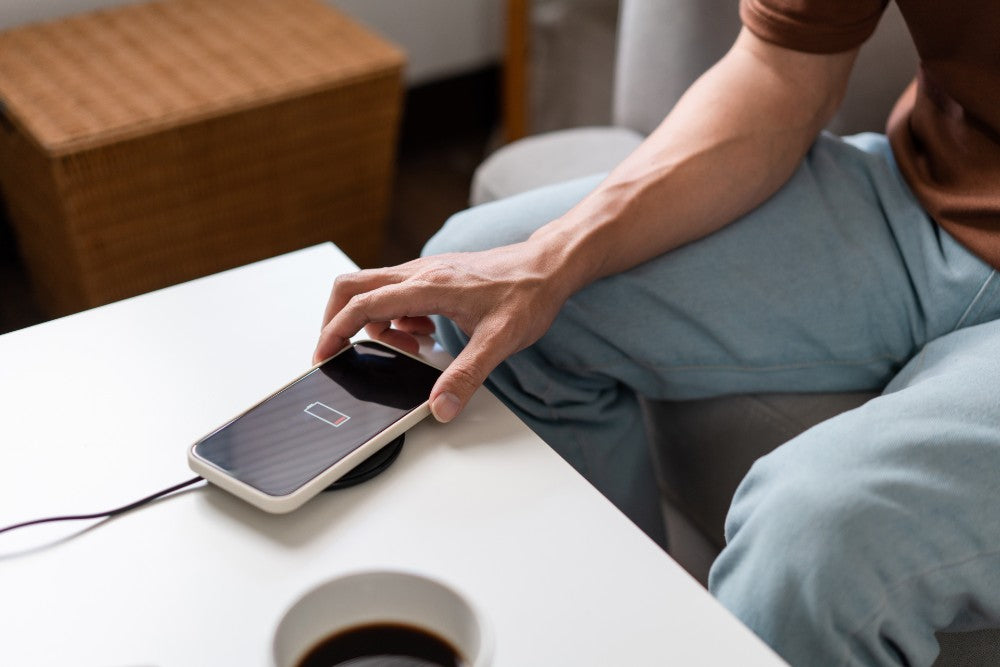
The Ultimate Guide to Wireless Charging
Do you find the mess of USB Charger cords on the floor caused by your electrical devices to be an annoyance? Wireless charging prevents you from leaving cables lying about while powering up your phone, laptop, or tablet. Figure out the ins and outs of this streamlined charging method and its benefits and drawbacks.
A definition of wireless charging
Wireless Charger, also known as inductive charging, isn't technically new. However, you may not have paid much attention to it until recently. For example, when sitting at its charging dock, your electric toothbrush draws power from a wall outlet, allowing you an utterly cordless charging experience. However, the label "wireless" is a little deceptive since there is a cord running from the charging pad to the wall outlet. Simply put, there won't be any cables dangling on the floor or tangled up in other gadgets.
Qi (pronounced "chee") wireless charging is an alternative to plugging your phone in to refuel, and it's been accepted by many major companies, including Apple and Samsung. Qi wireless is the universally-compatible standard, meaning that you can charge your phone on any Qi-compatible wireless pad, whether you're at home, at a friend's, or at a café.
The mechanics of wireless power transfer
One coil of wire must be housed in the Charger, and the other must be housed in the charged gadget. If you plug a gadget into the Charger, the current flowing through its coil will induce a current in the device's internal coil while the two are in close proximity. The battery of your phone will be recharged this way.
When compared to wired charging, how quick is wireless?
Qi-certified charging pads (more on these in a moment) may provide anywhere from 5W to 15W of power to your device, depending on the phone and pad you pair them with. Although specific wireless chargers can produce larger wattages under certain conditions, this is likely slower than wired charging blocks, which range between 20W and 30W on average.
The benefits and drawbacks of wireless power charging
Pros
- Wireless phone charging is safer since there is less of a danger that you may burn yourself on a hot Adapter or trip over the charging cord.
- Place your phone on the pad, and it will begin charging.
- Especially useful for iPhones, which use their single Lightning connector to charge the device and provide sound to wired headphones, this accessory helps extend the life of the charging port.
- Wireless charging is becoming more and more common, so even if you leave your Charger at home, you can still power up your phone while you're out and about.
Cons
- Qi wireless charging is not supported by all phones.
- Cell phones that charge wirelessly must have a glass back, making them more fragile than their metal-backed counterparts.
- You can't use your phone while charging if you don't have a MagSafe charger or a vertical stand.
- The charging process is already sluggish, but any movement or misalignment of the phone concerning the electrical current might delay it considerably more.
- Because of the more effort required to produce them, wireless chargers have a higher retail price.
Is there any benefit to using a wireless charger?
One apparent reason is that it's more convenient. Thanks to wireless charging technology, you can now charge your phone without physically connecting a cord to it. While many wireless chargers need an electrical outlet to function, you may charge your phone by setting it down on the pad until you're ready to use it again, rather than fumbling around for the end of the cord.
Suppose you are travelling internationally and do not have a suitable connection. In that case, you do not need to worry as much about bringing your power adaptor since appropriate charging pads and mats are accessible in public locations across the globe.
Final Word
Consider the more space-efficient wireless charging kind if Wall Charger cords aren't your thing. It's possible that you won't need to spend that money if you'd rather not. Instead of dealing with the hassle of always needing to plug your phone in, you may want to think about getting one with a larger battery. If you wisely use your phone, you may significantly extend the battery's life.
